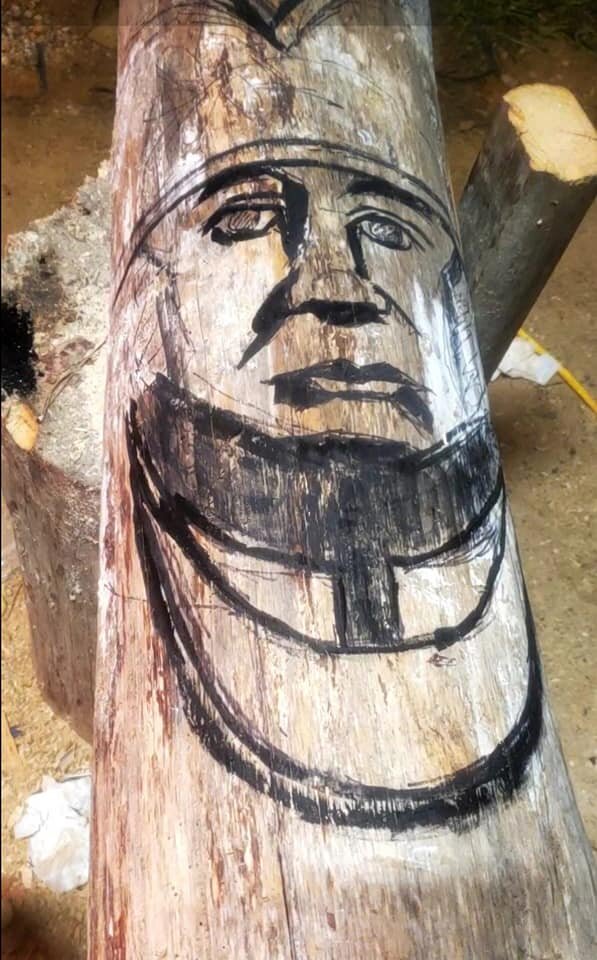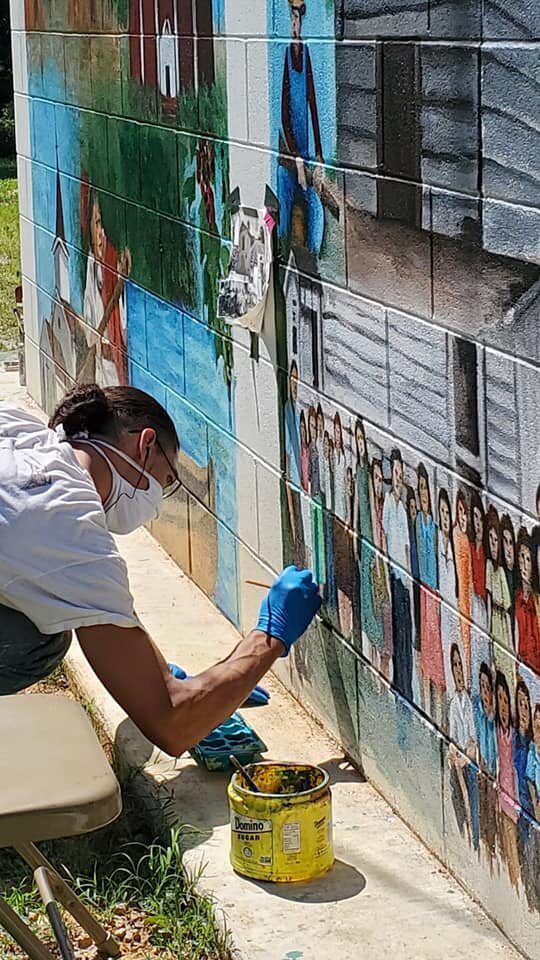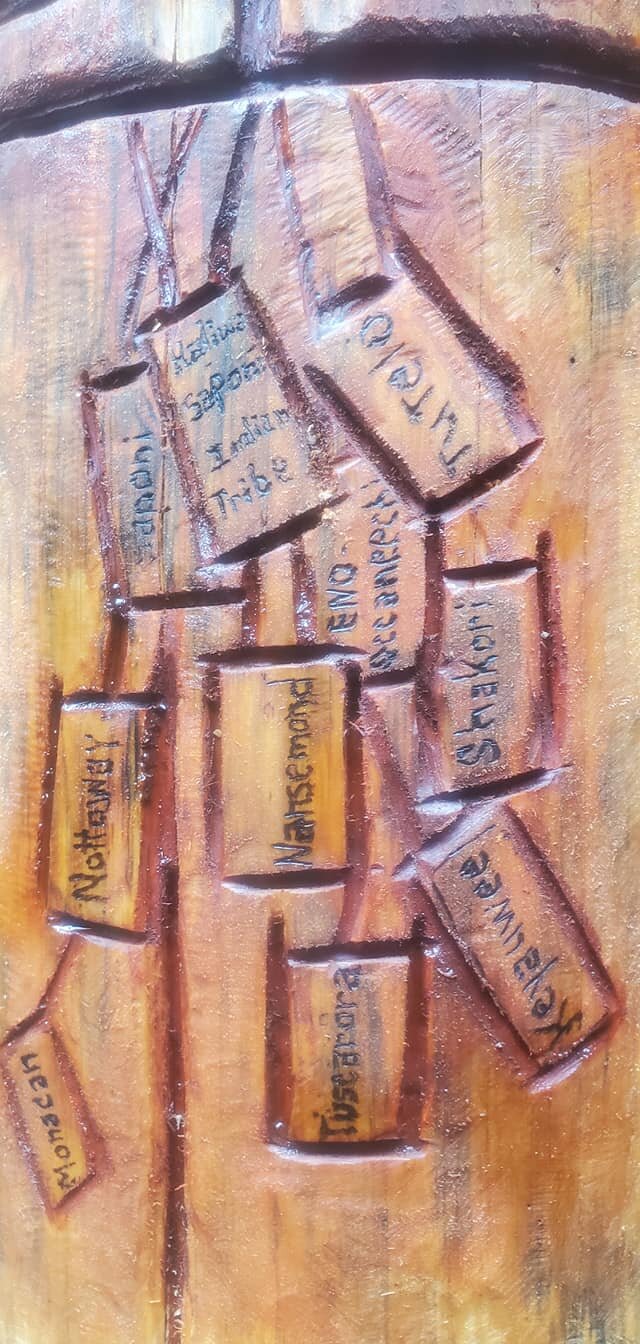Haliwa-Saponi Indian Tribe
Hollister, NC
Photo courtesy of the Haliwa-Saponi Indian Tribe. Thumbnail courtesy of Karen Lynch Harvey
This project focuses on highlighting the achievements and contributions of the Haliwa-Saponi Indian Tribal community members, despite the continuing impact of colonialism and segregation on their community. The southern, Black/White racial binary and legacy of White supremacy has contributed to false perceptions of the Tribe, negating its history of enduring peoplehood, perseverance, and preservation of identity. In the name of survival, the ancestors of the Haliwa-Saponi adopted and adapted to the settler way of life, while still maintaining distinct tribal identity. The Haliwa-Saponi were a driving force in the local civil rights era, organizing Indian-only political and social institutions like the Haliwa Indian Club, Haliwa Indian School, and Mount Bethel Indian Baptist Church. In this way, the tribal community navigated existing societal systems to assert its distinct political and social identity as “Indians” within the movement. Today, the youth of the Haliwa-Saponi community benefit from the bold leadership of their grandparents as they face political, social, and cultural attacks on their identity. Taking the artistic lead on the project are community members, and husband and wife artist-team, Karen Lynch Harley and Phillip Harley. They created two distinct murals, each with carved wood features. The first 6x20 foot artwork is located on the premises of the old council house along Highway 561. The second mural, measuring 12x68 feet, represents the medicine, wisdom, creativity and strength that is held within the Haliwa-Saponi Multipurpose Building, illustrated on the facade. The desire is for this artwork to be used as a catalyst for continued conversation within the tribal community in Hollister, NC and a visual commentary of Haliwa-Saponi past, present, and future.
The following slideshow highlights the Haliwa-Saponi community process from idea, to community engagement to celebrating the completed public artworks.
To learn more about the Haliwa-Saponi Indian Tribe please visit https://www.haliwa-saponi.org/
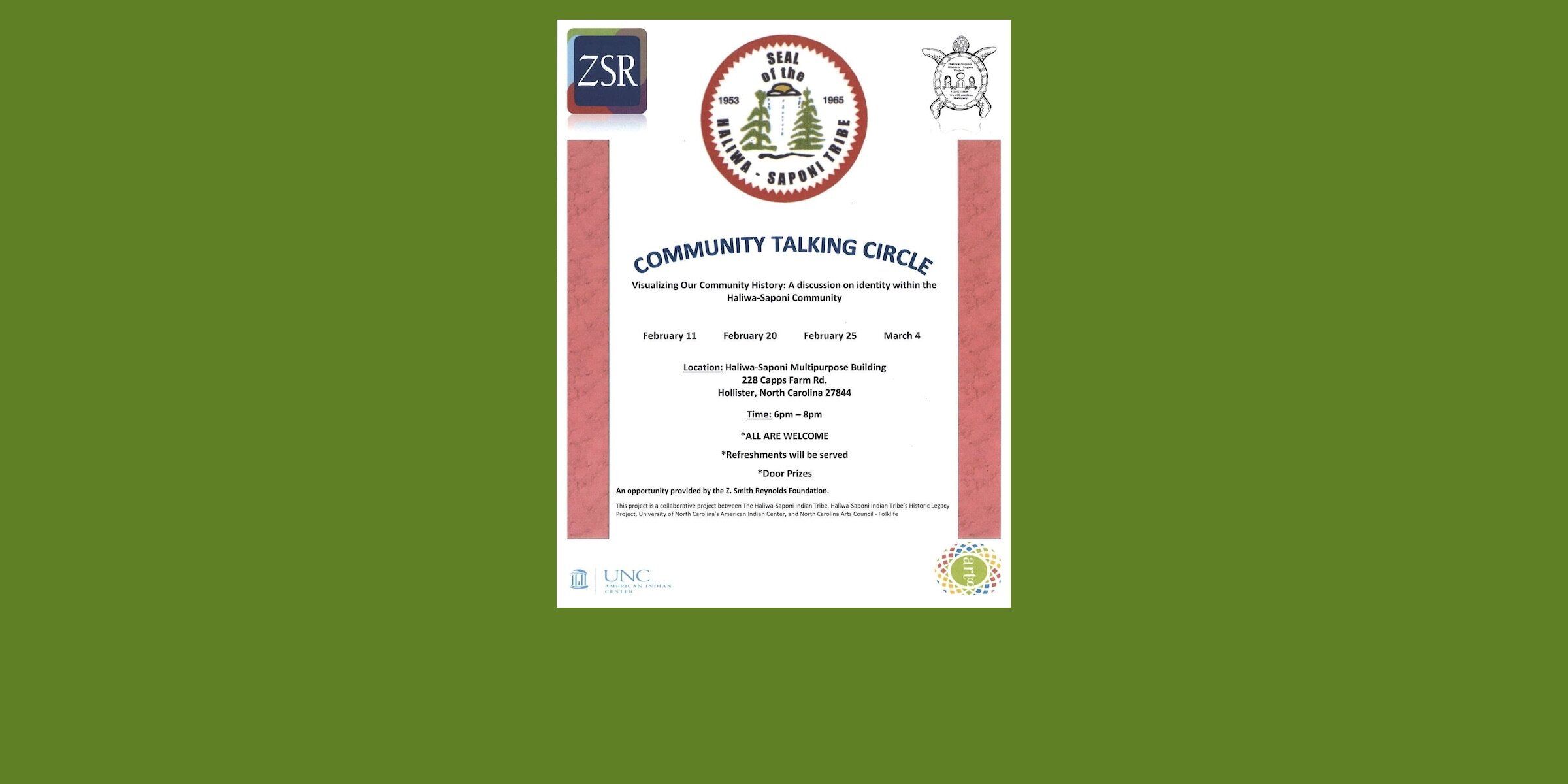
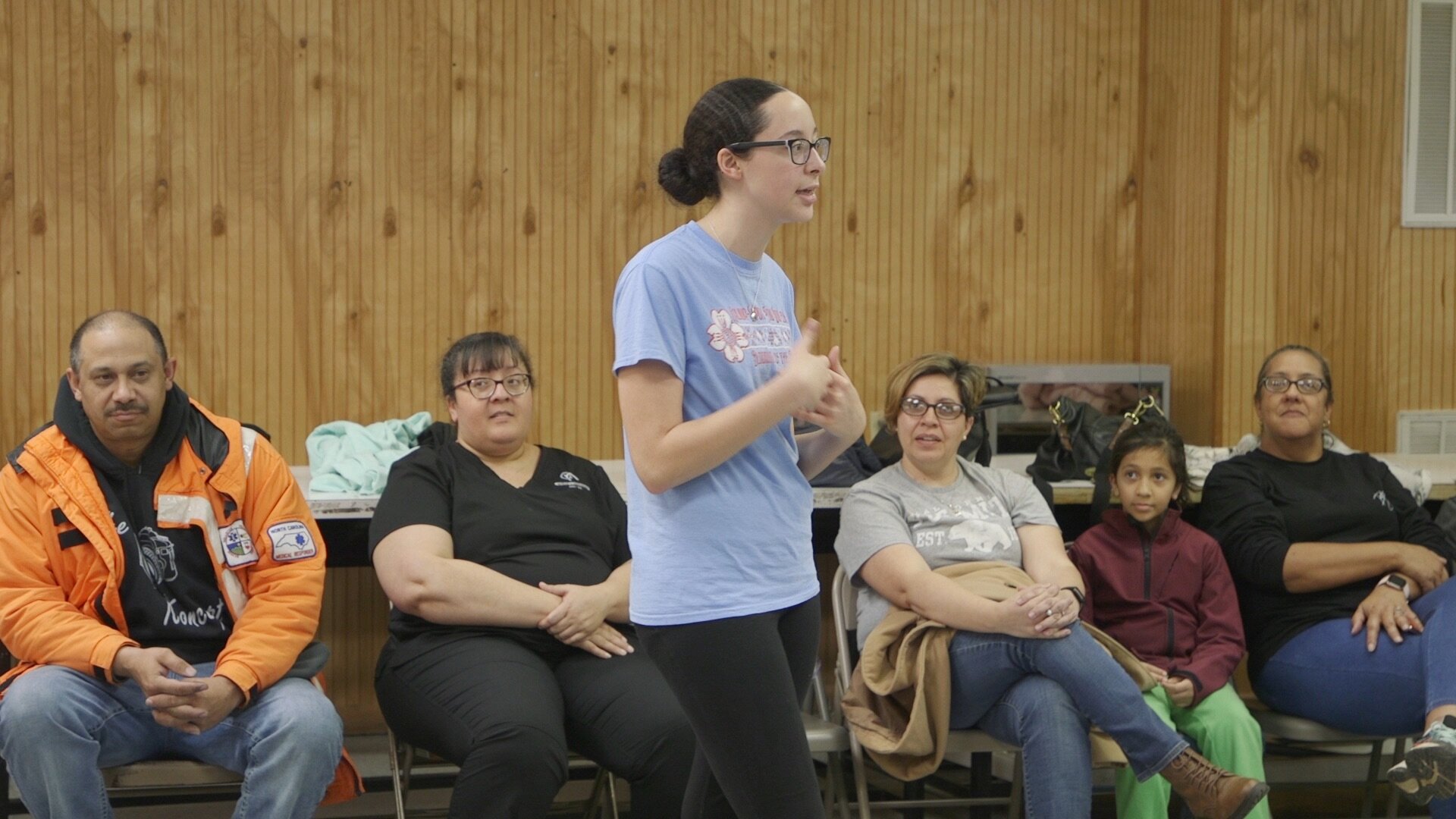
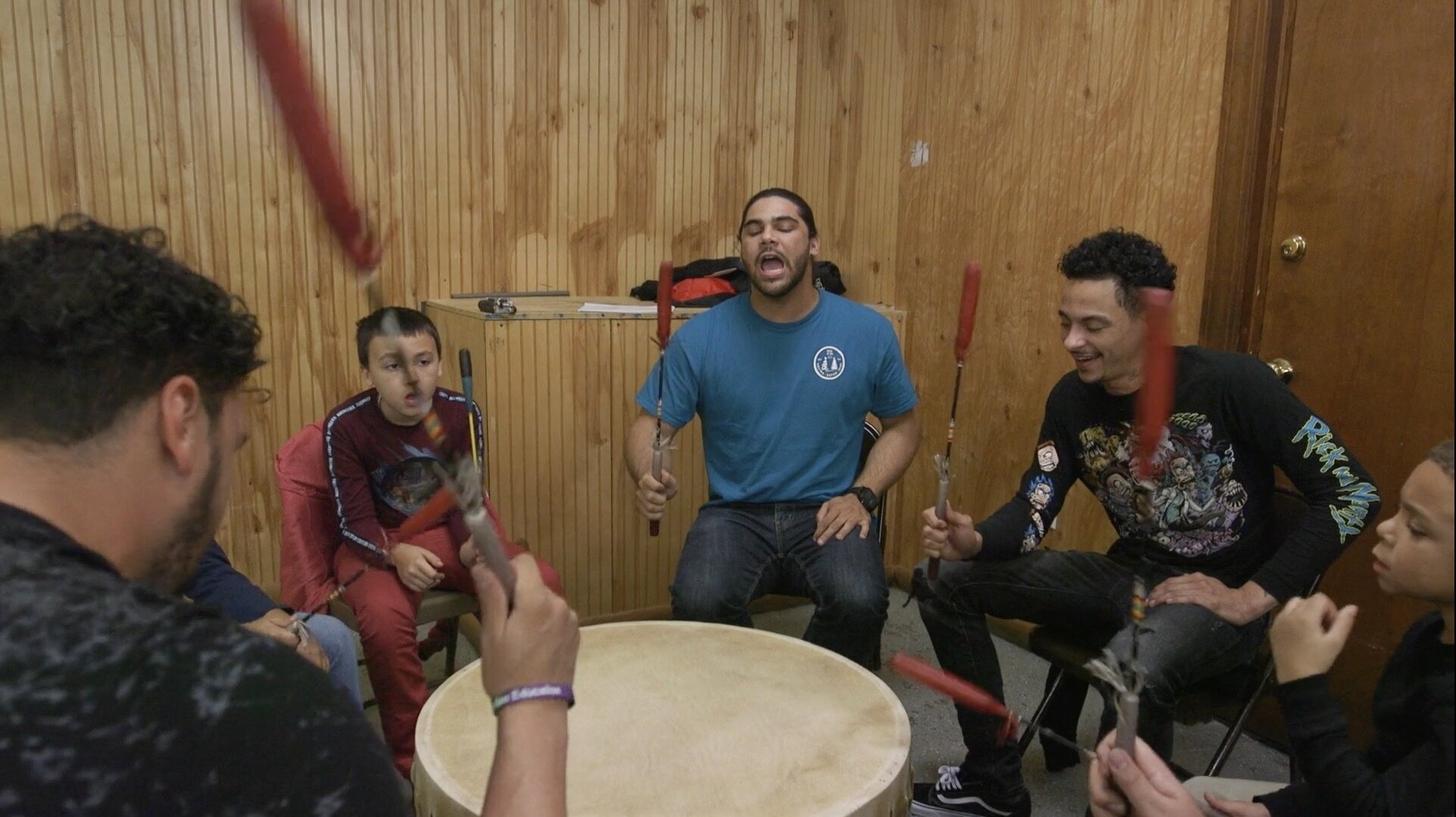
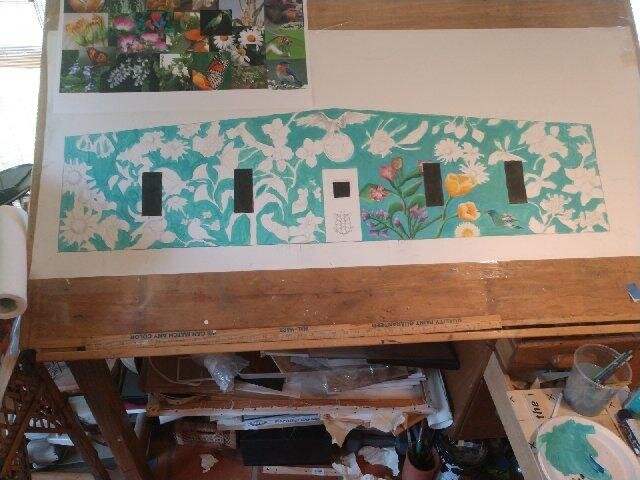
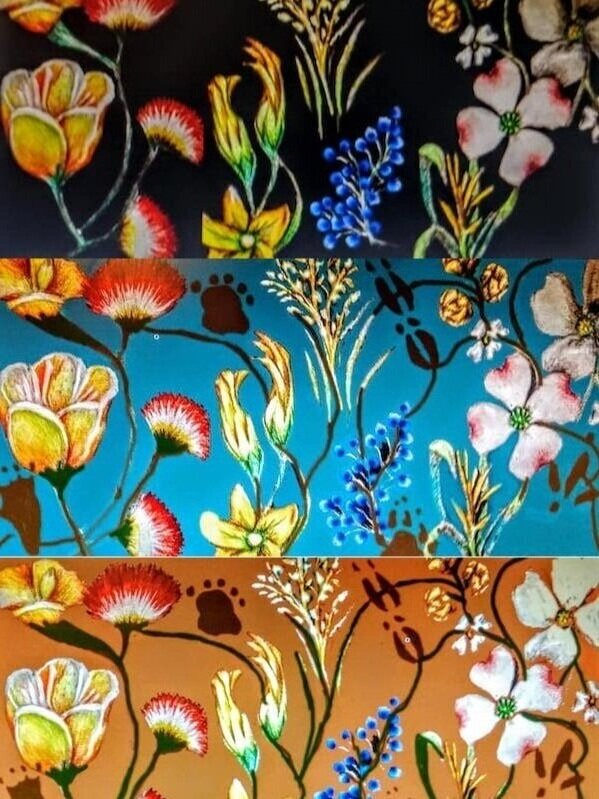
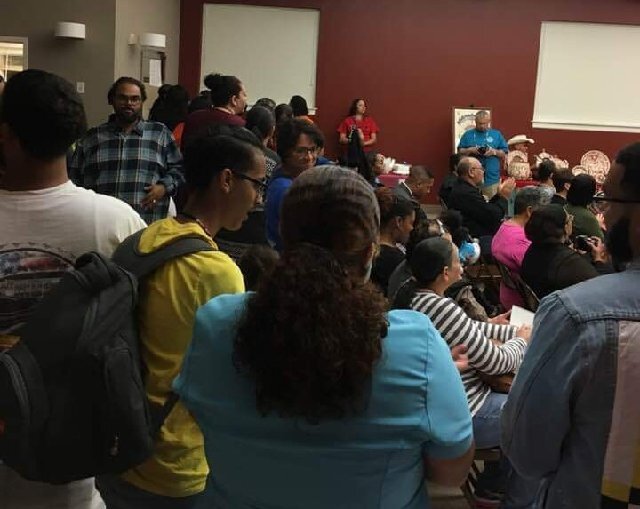
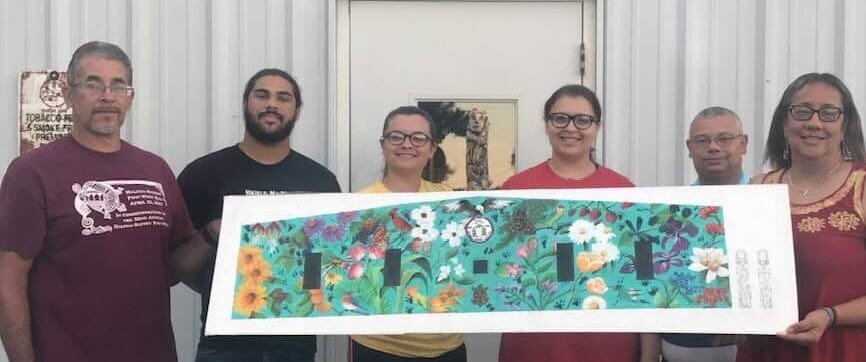
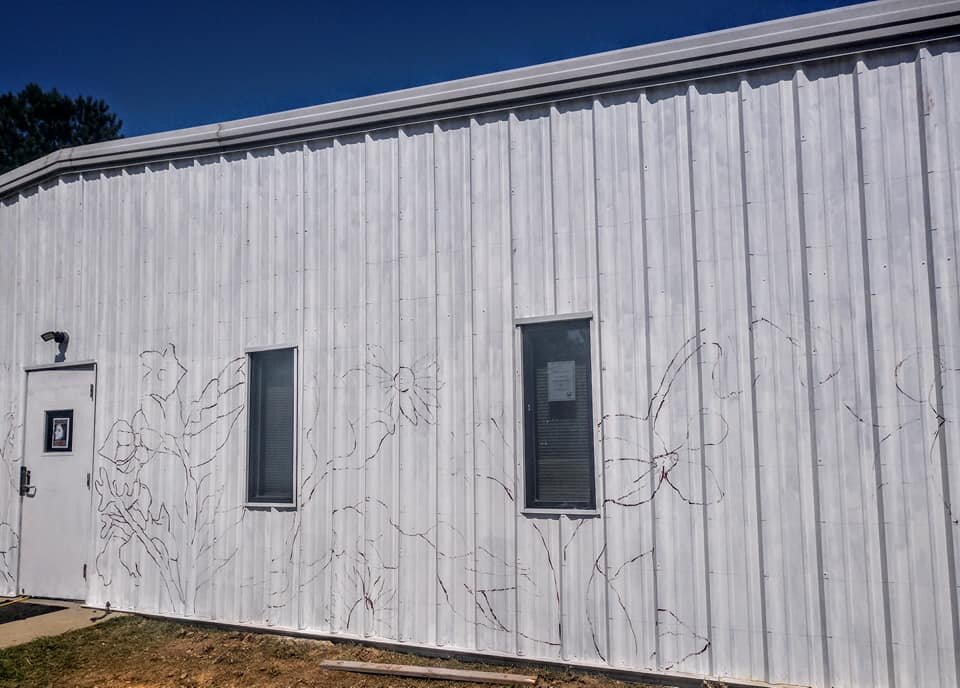
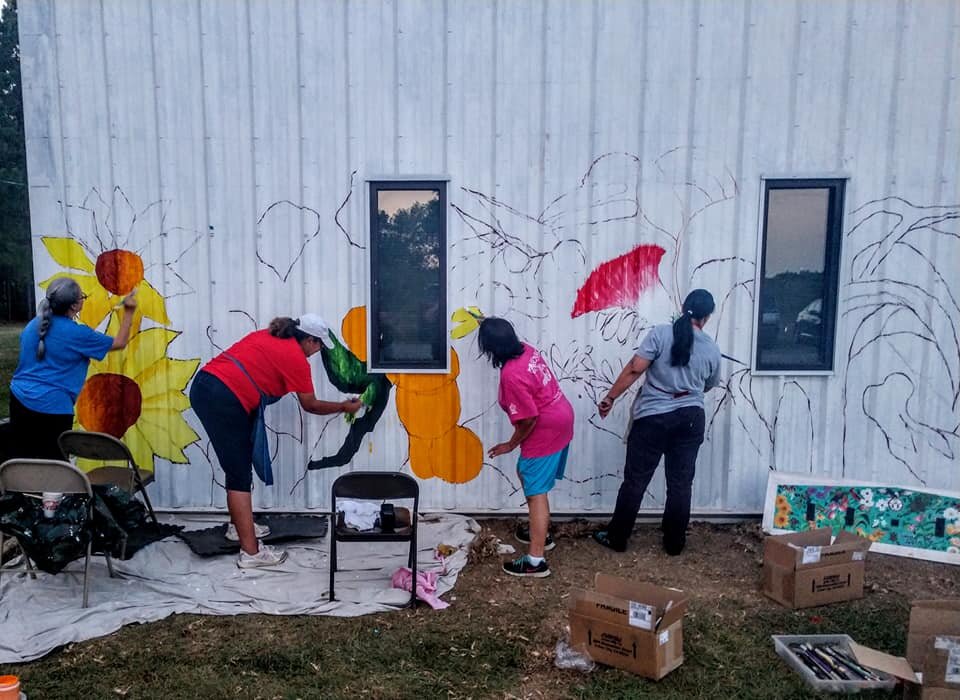
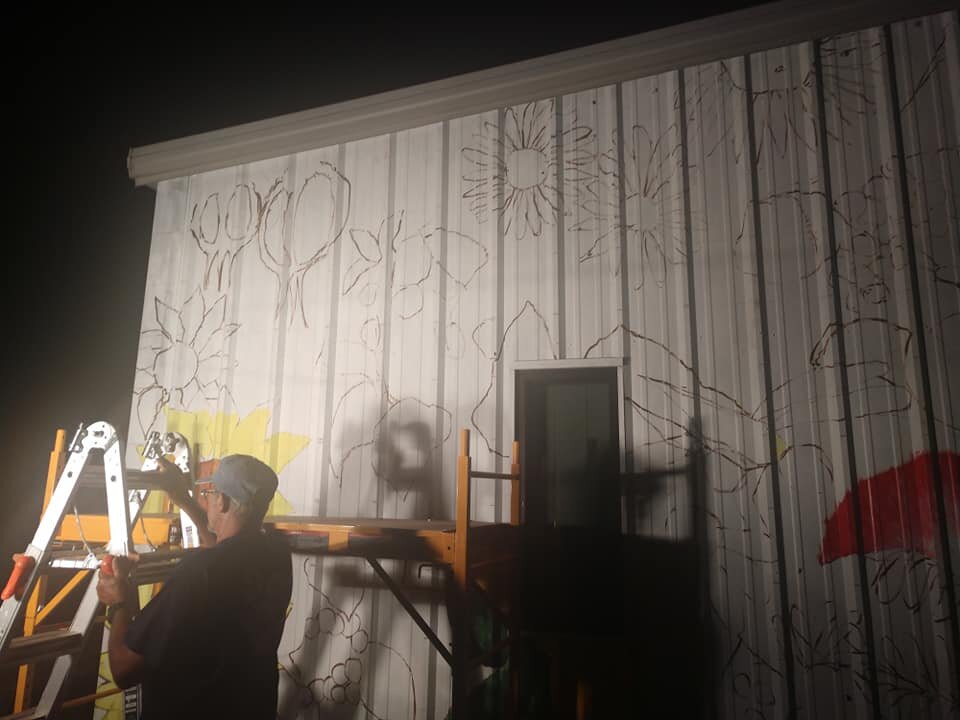
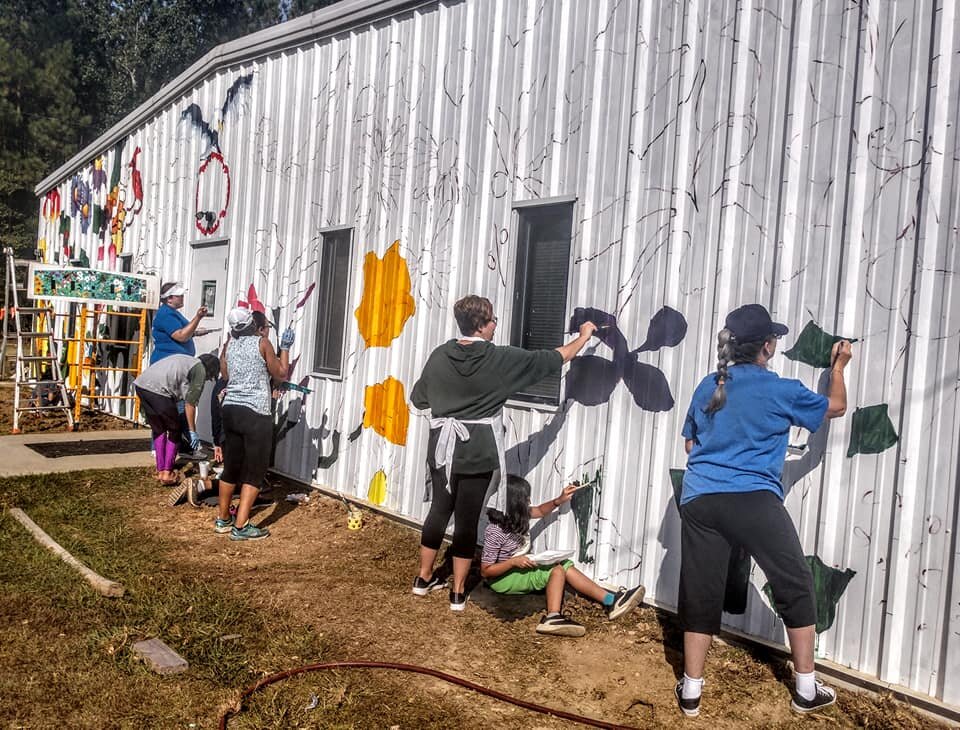
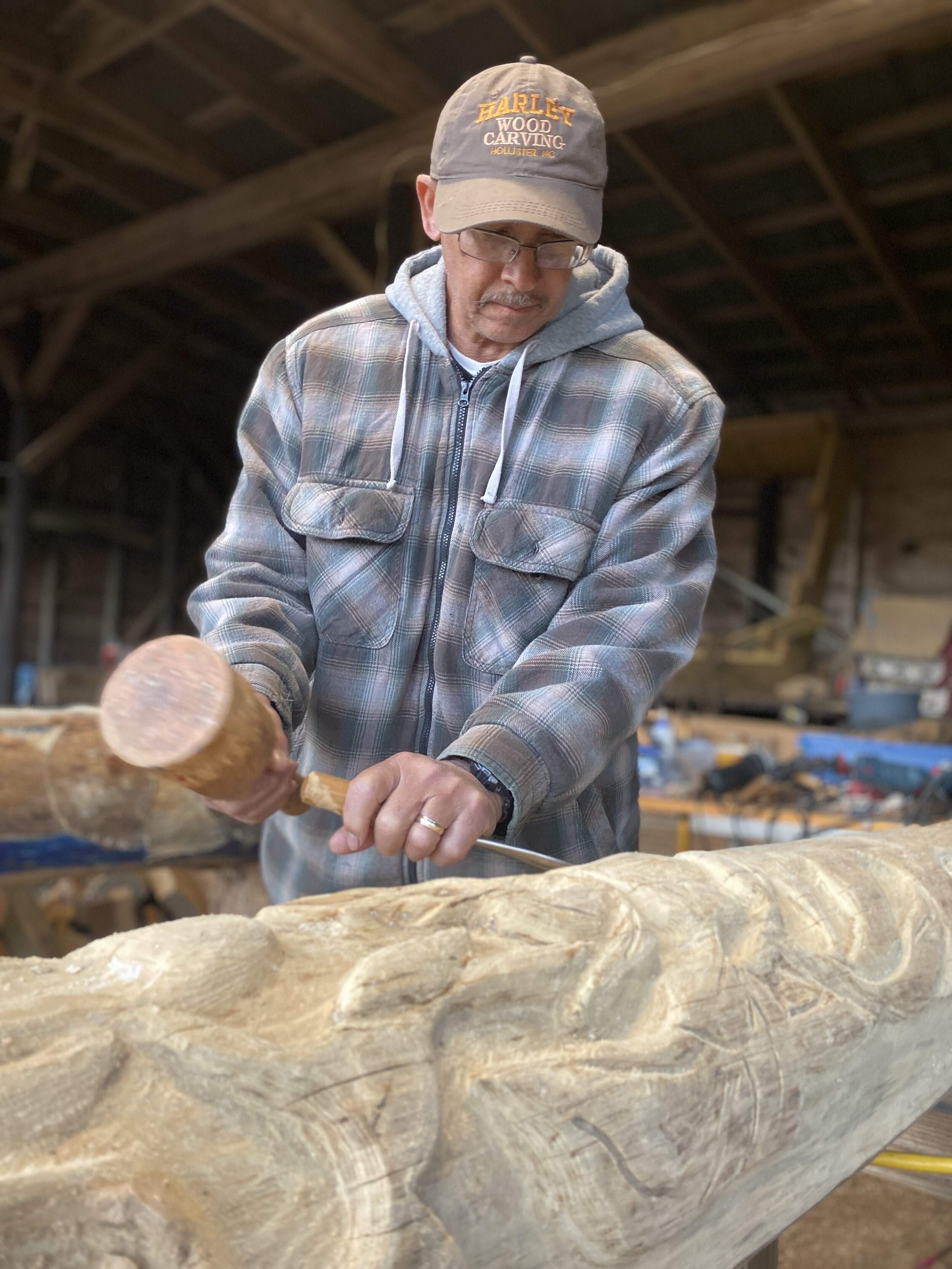
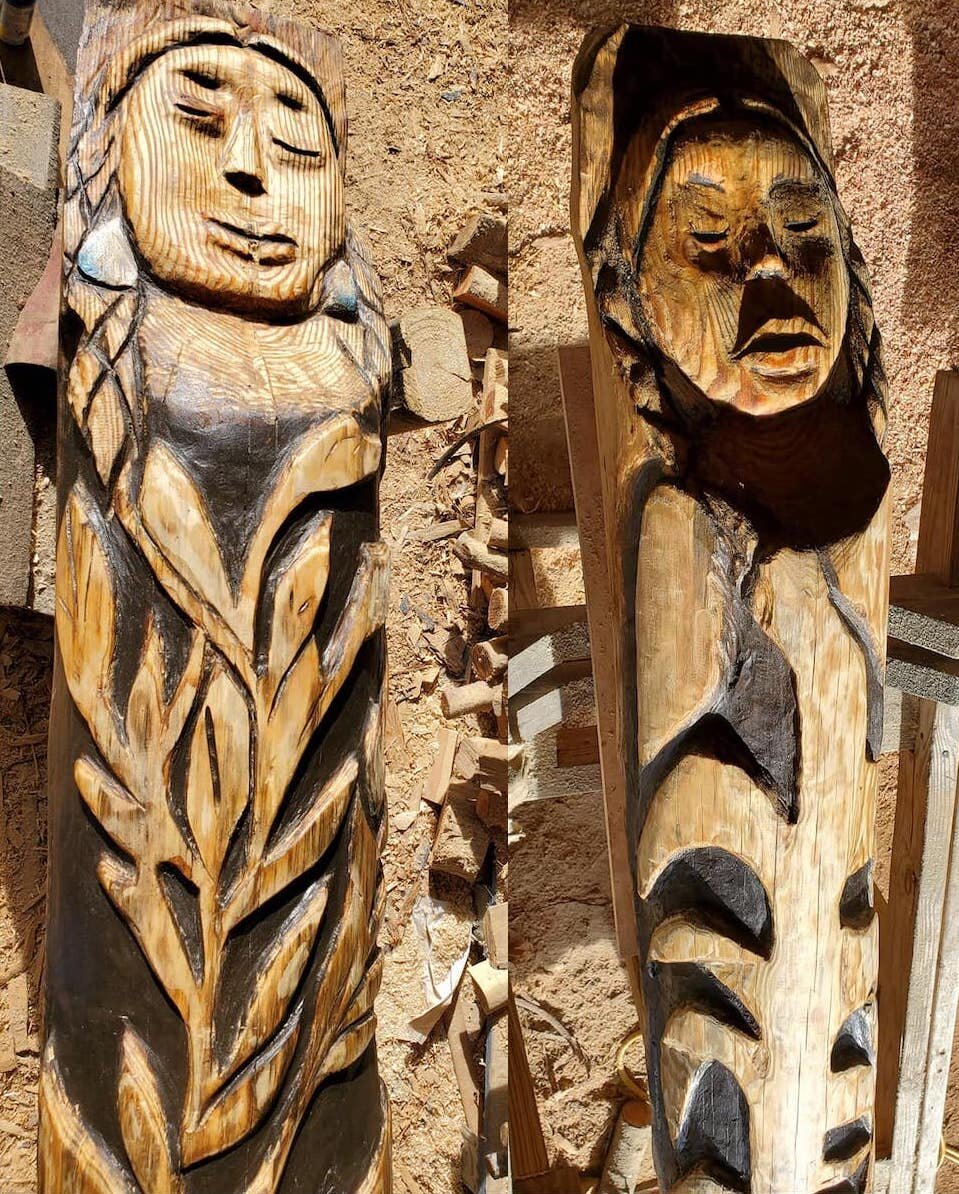

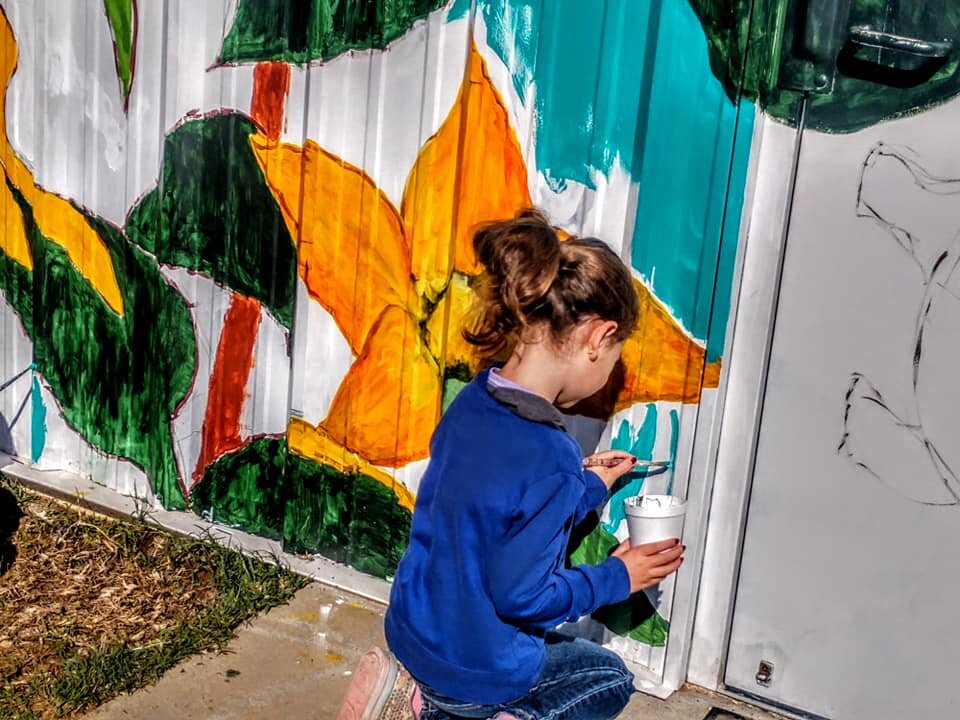
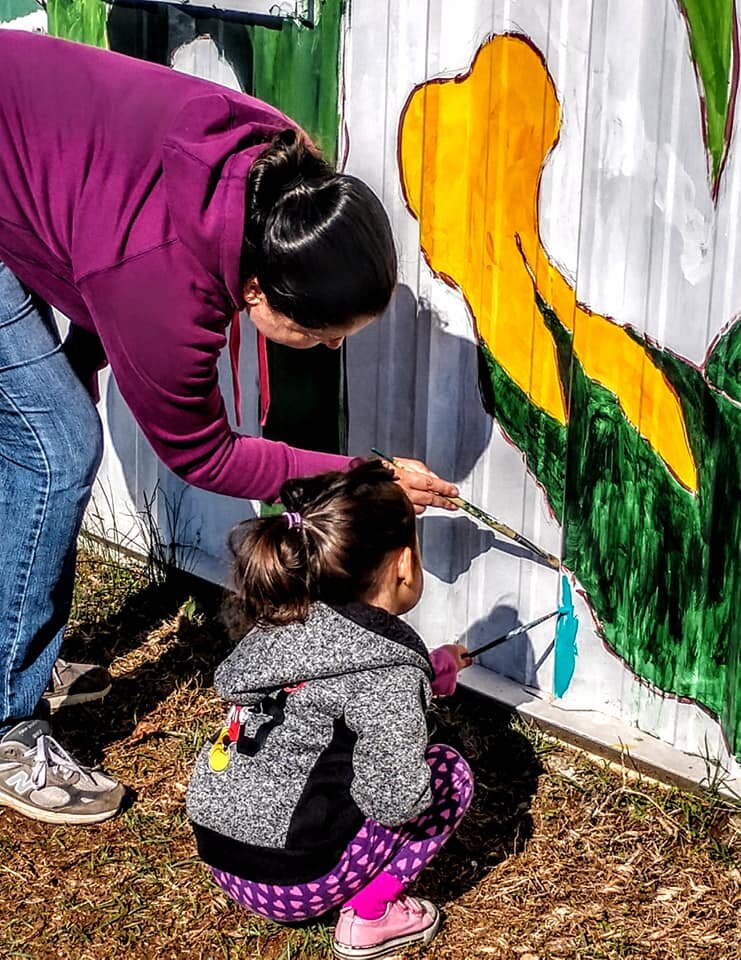

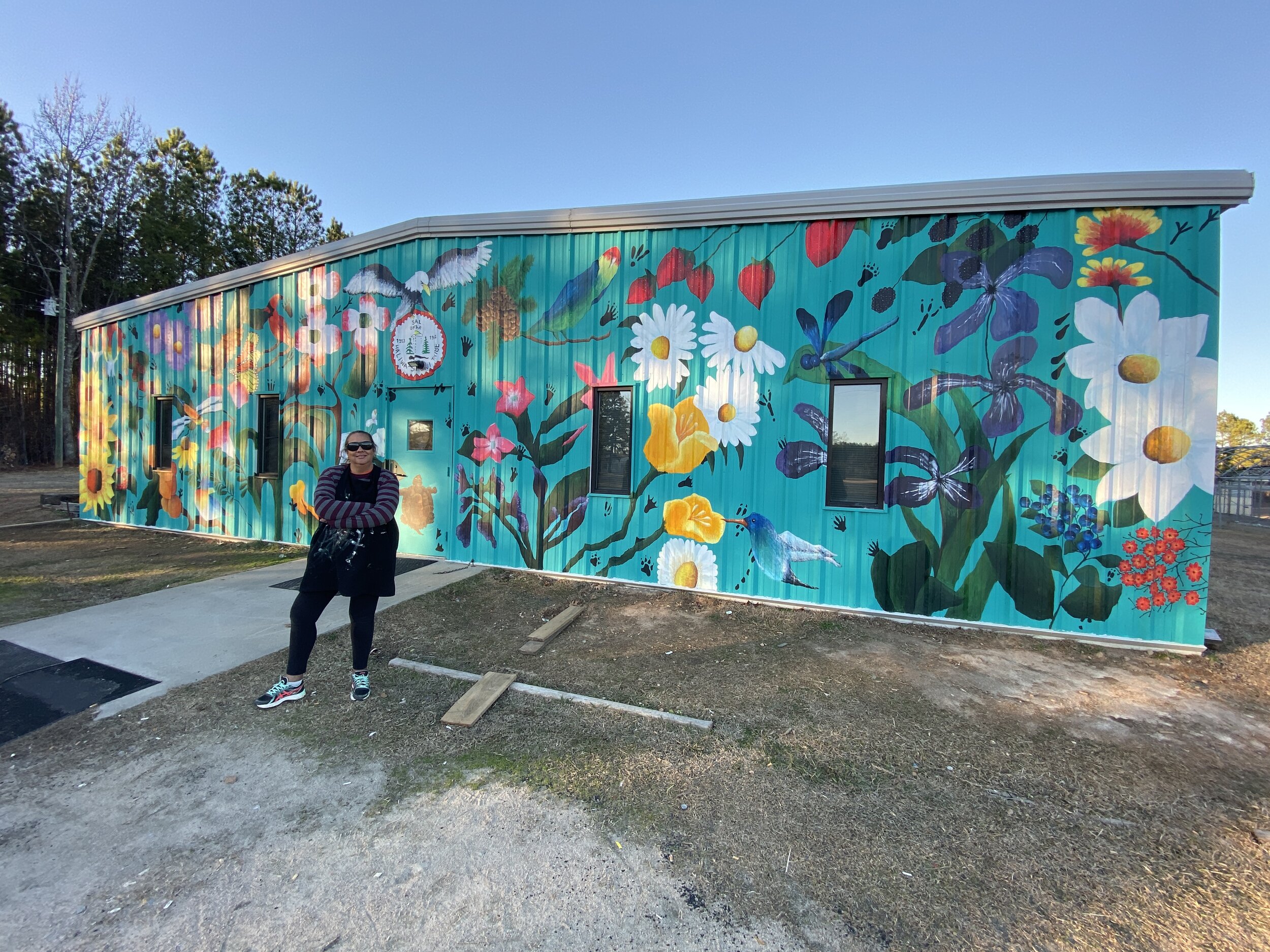
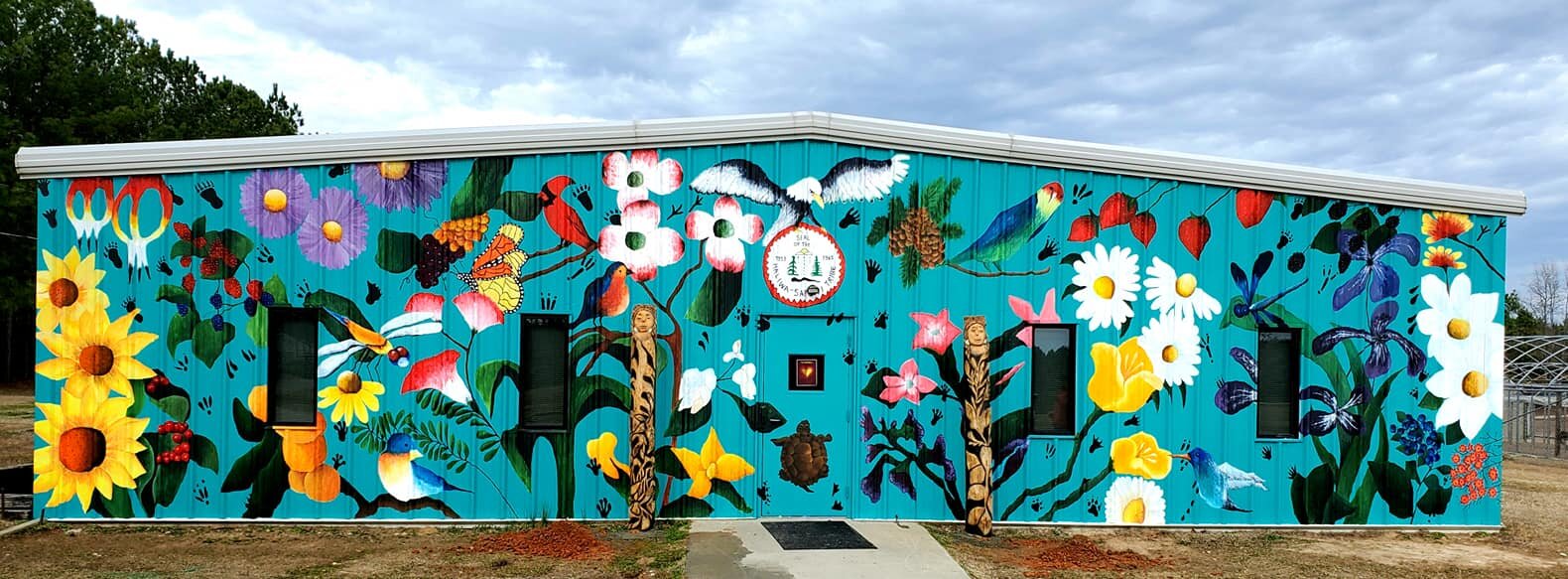
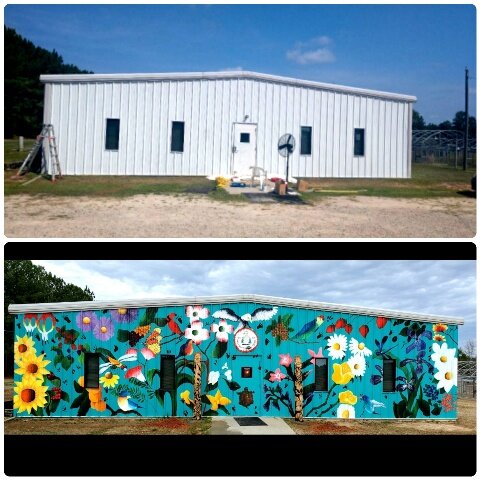

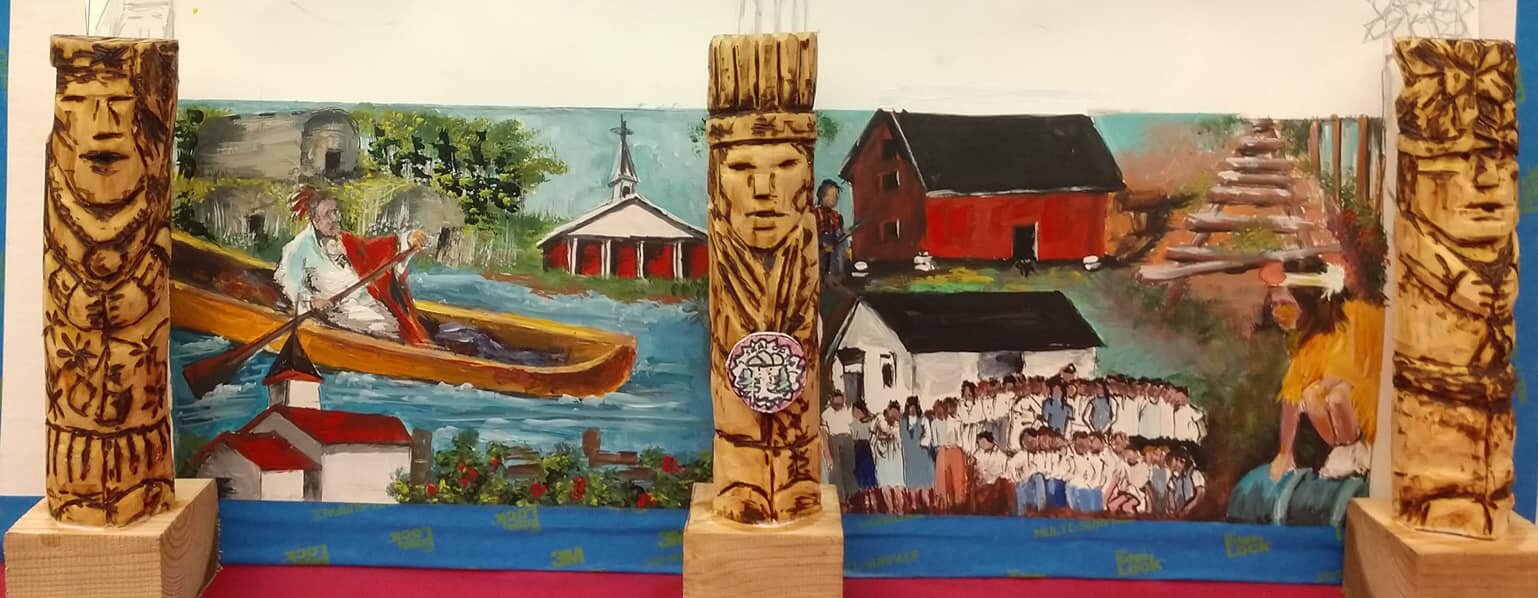
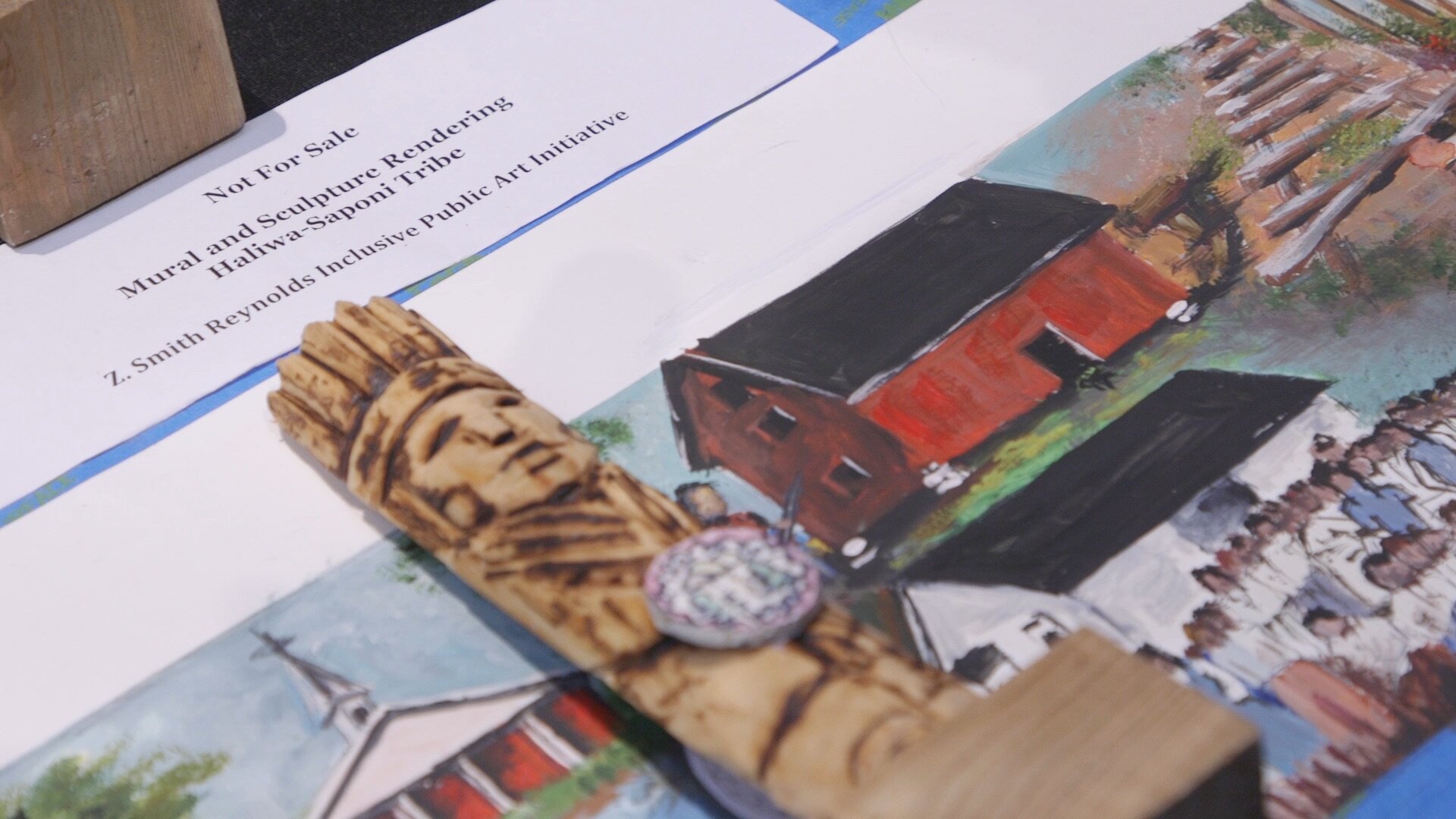
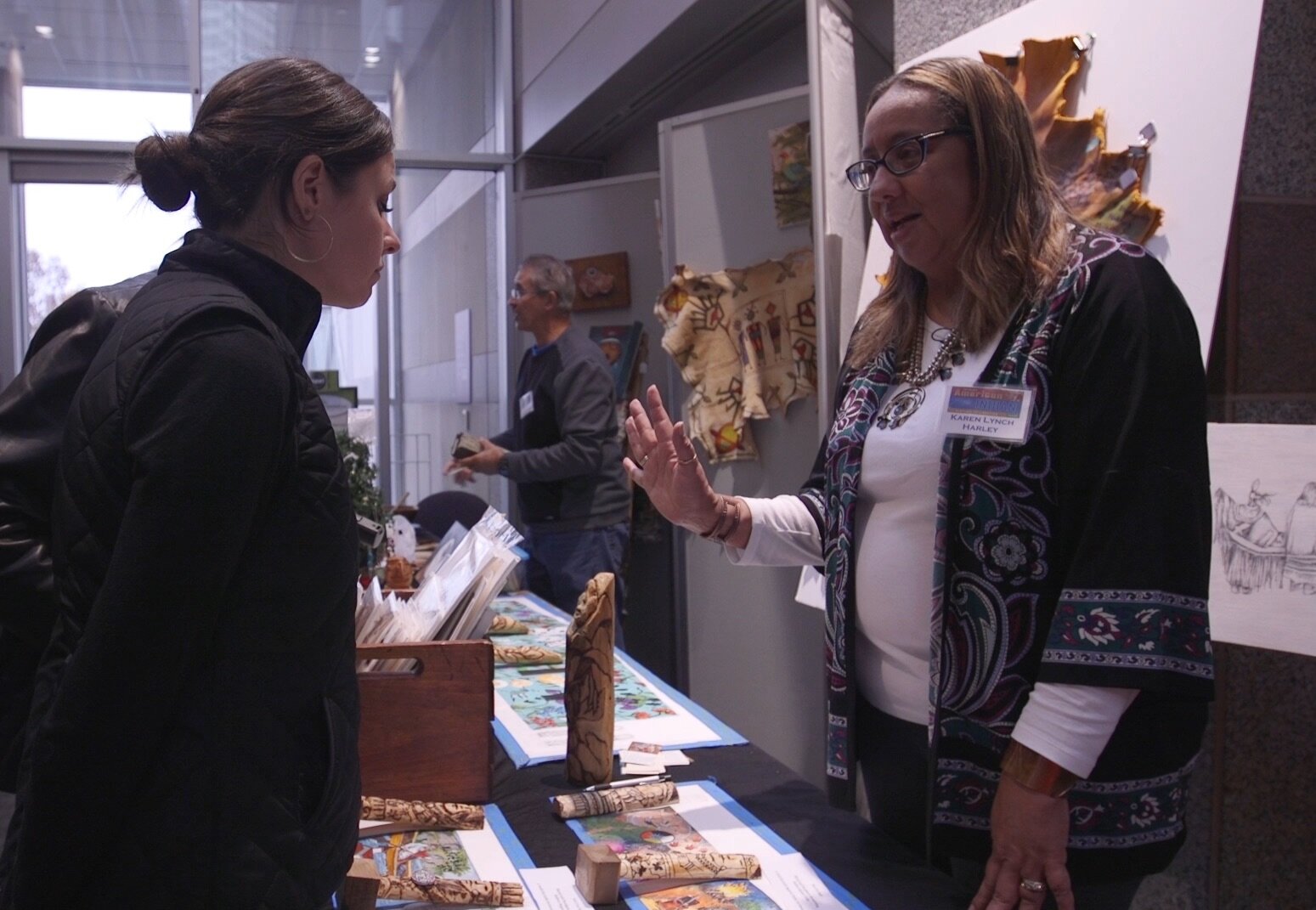
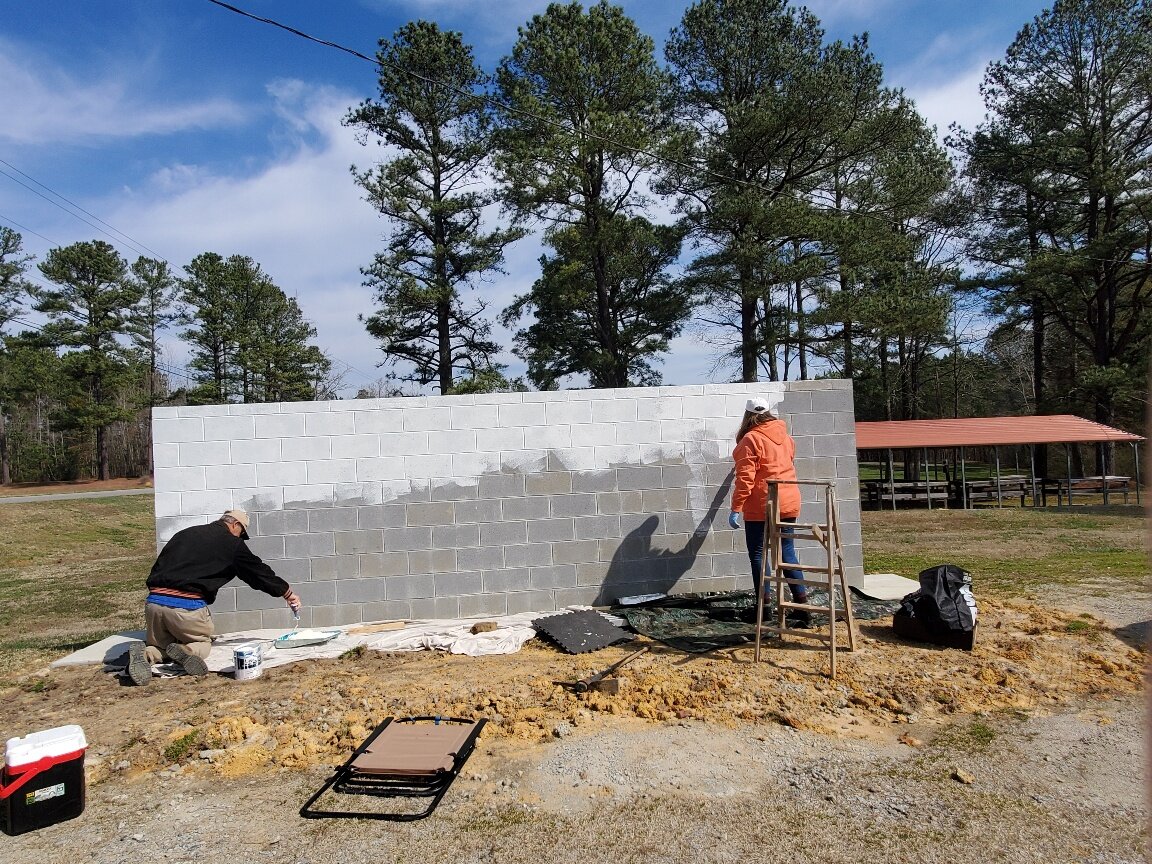
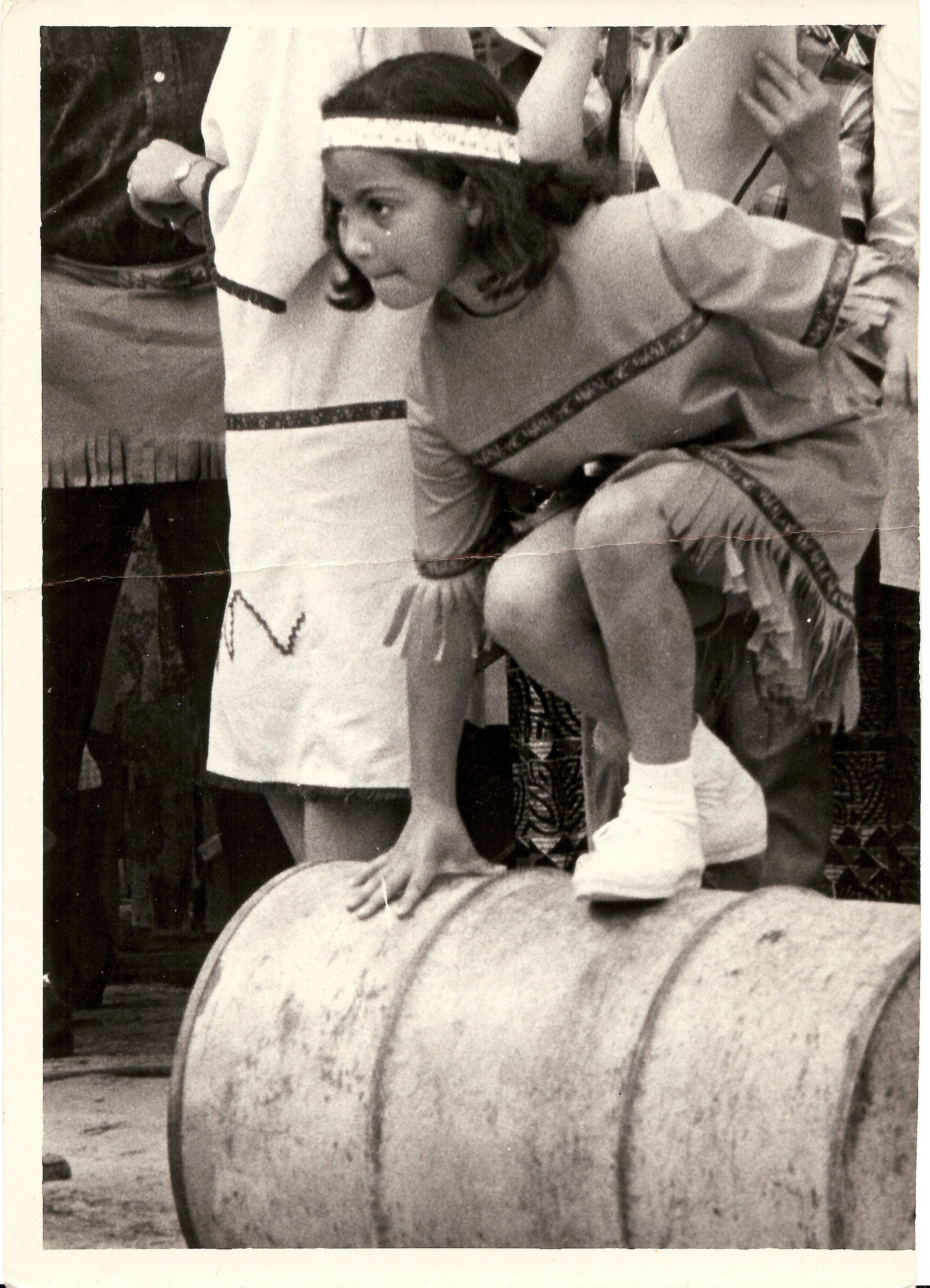

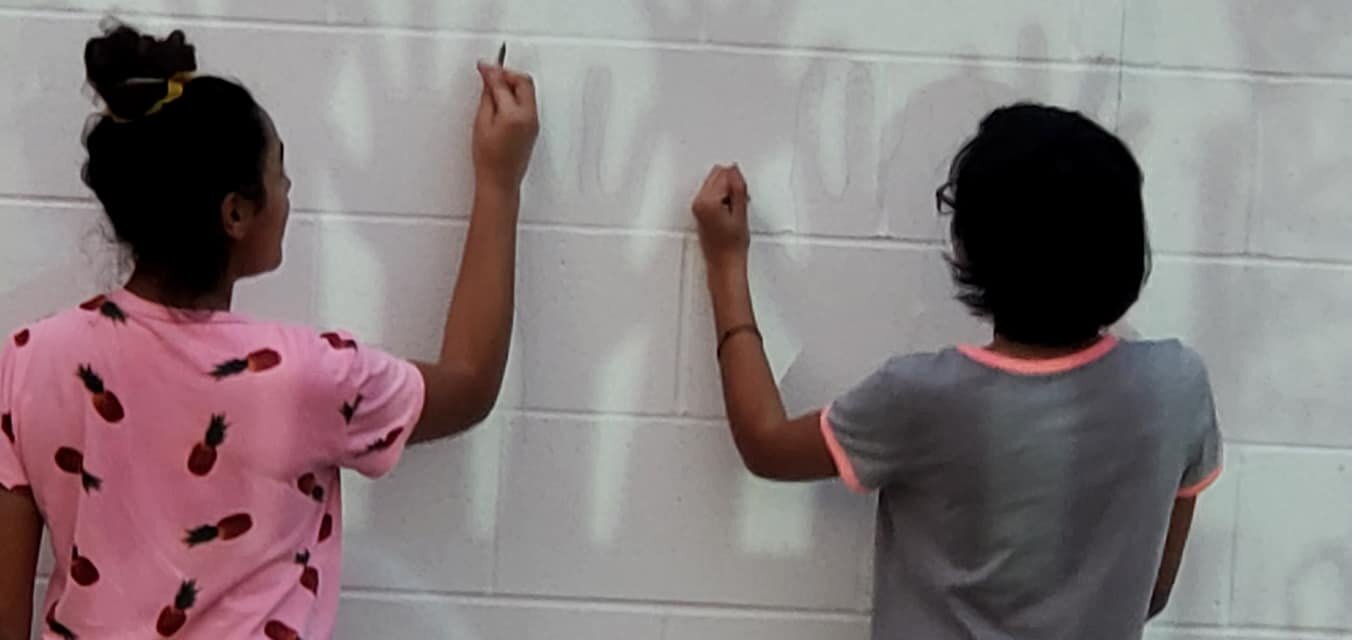
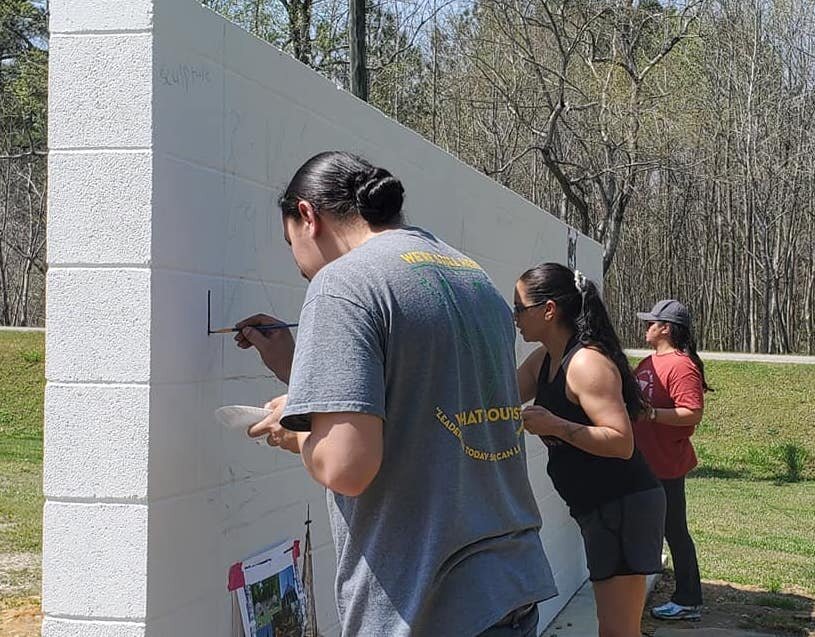
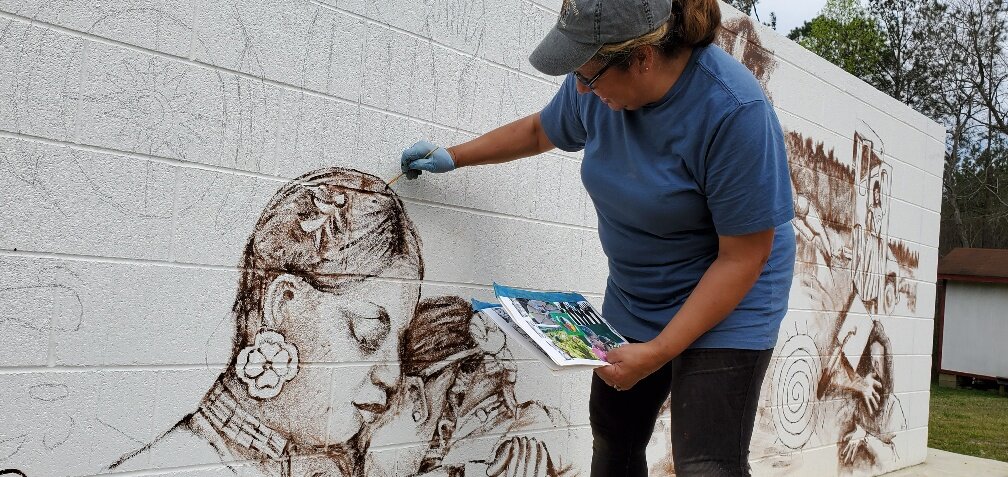
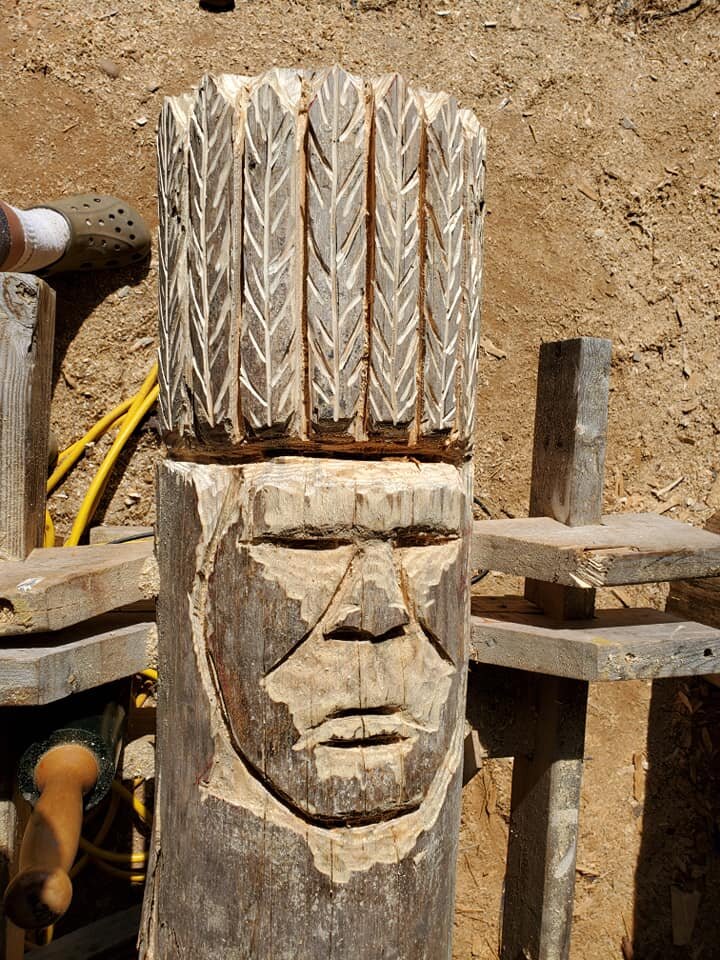
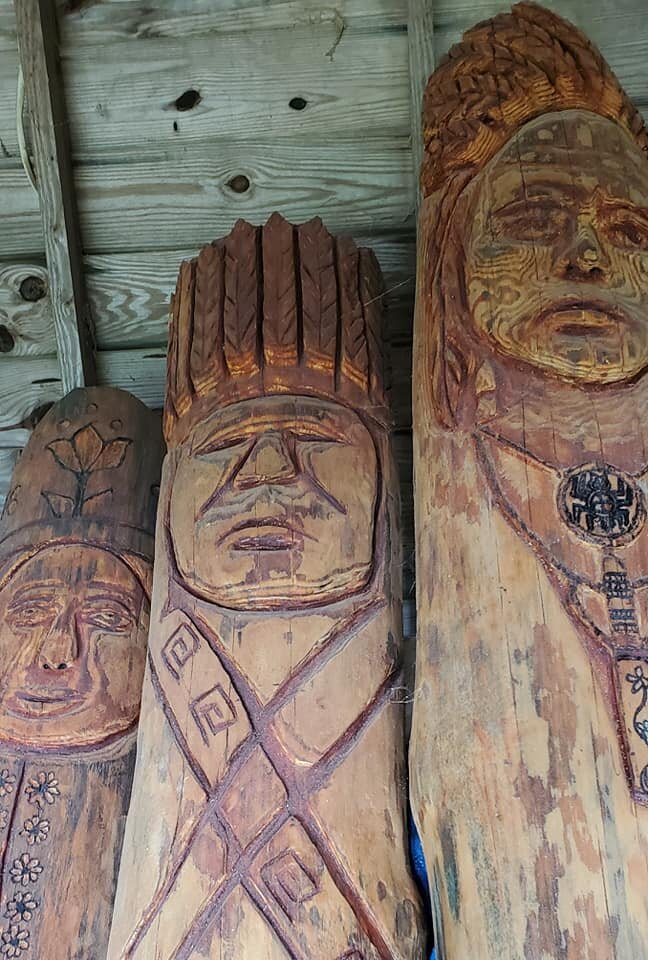
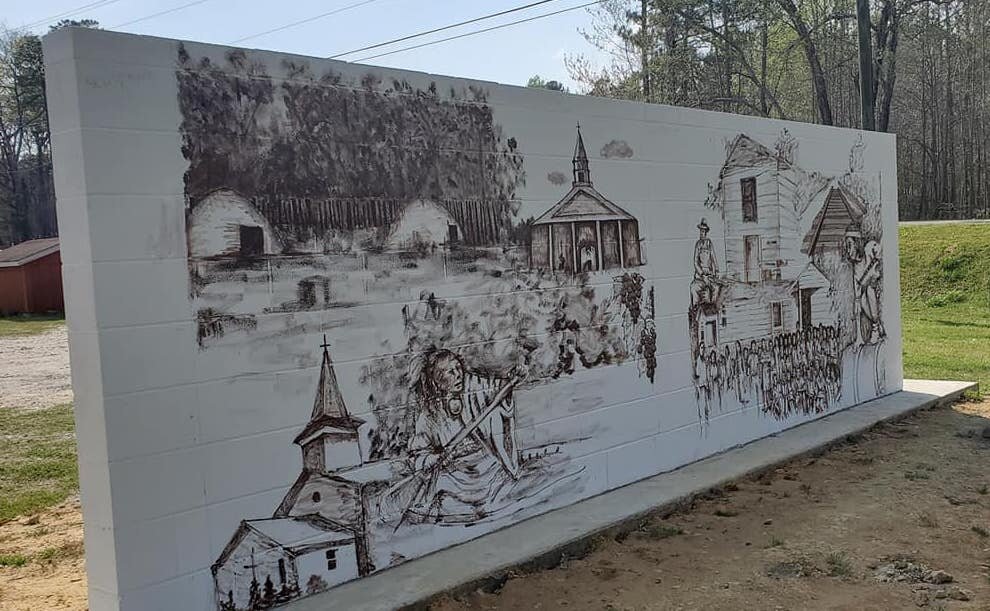
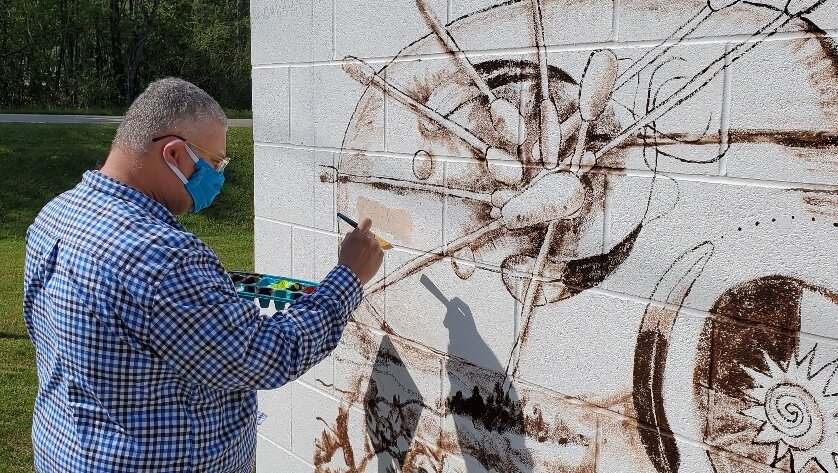
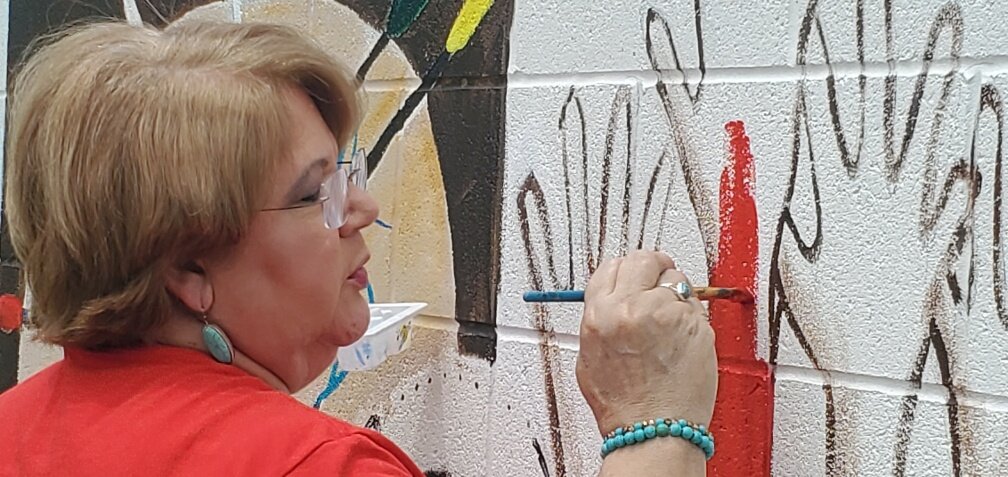
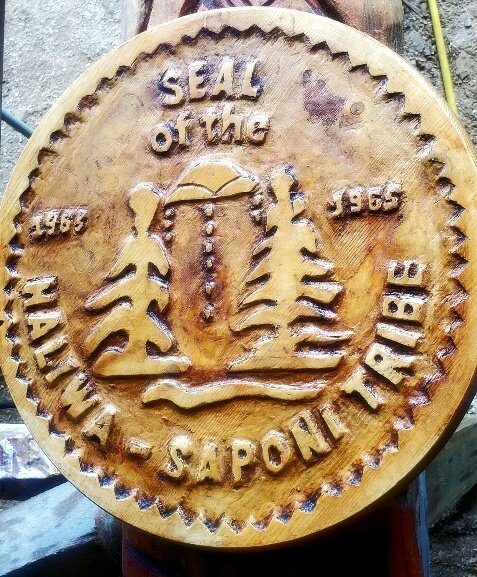
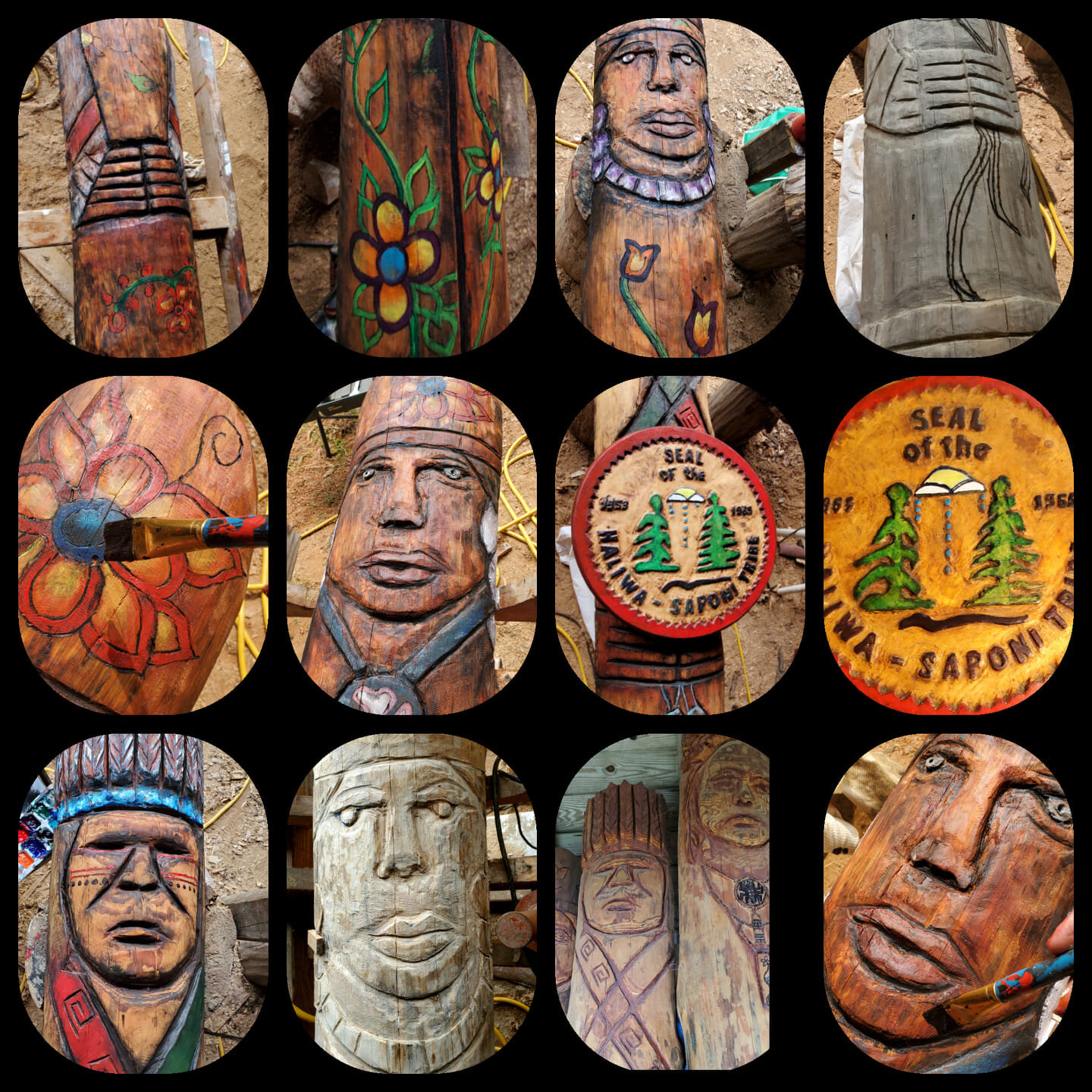
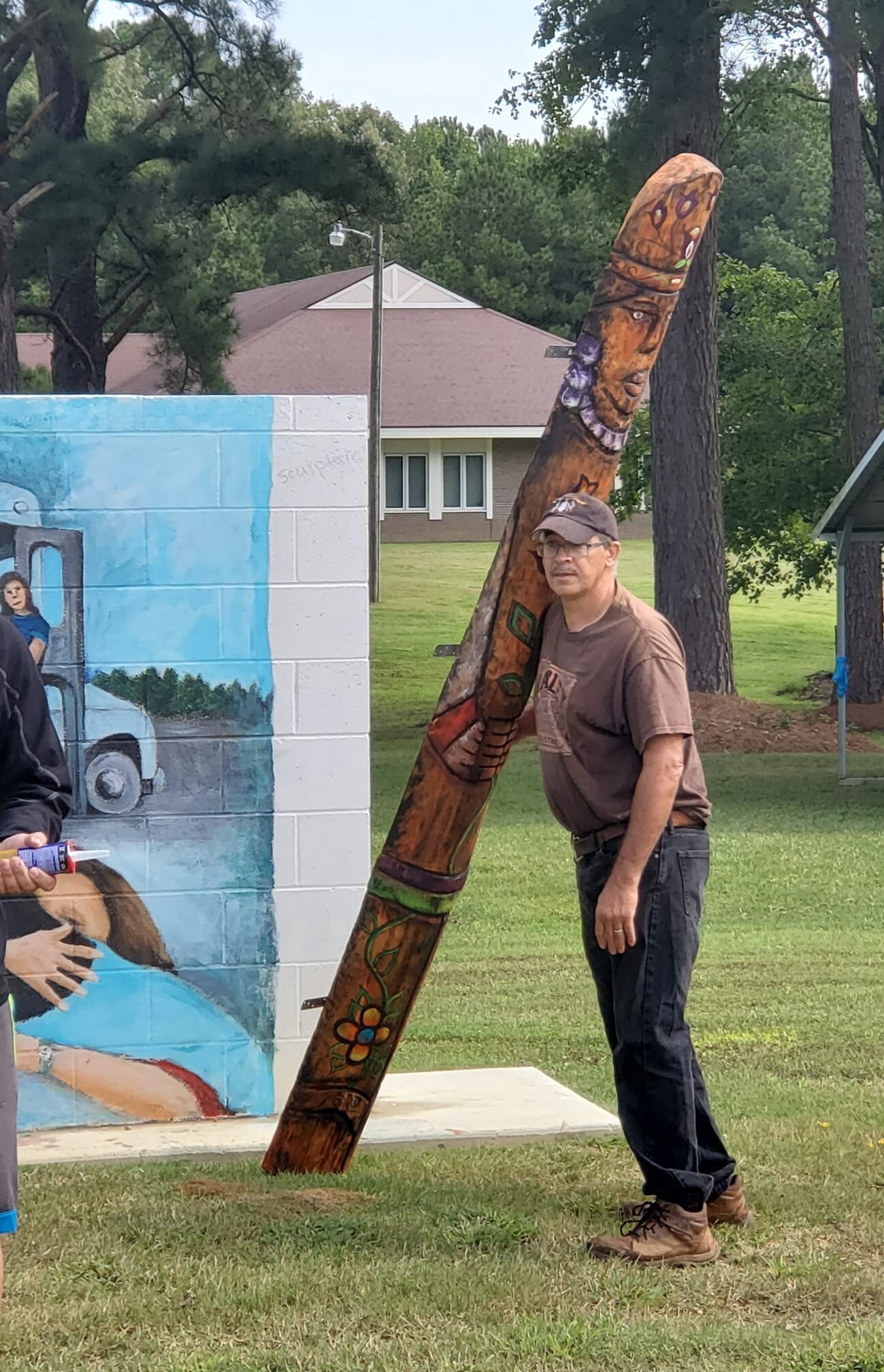
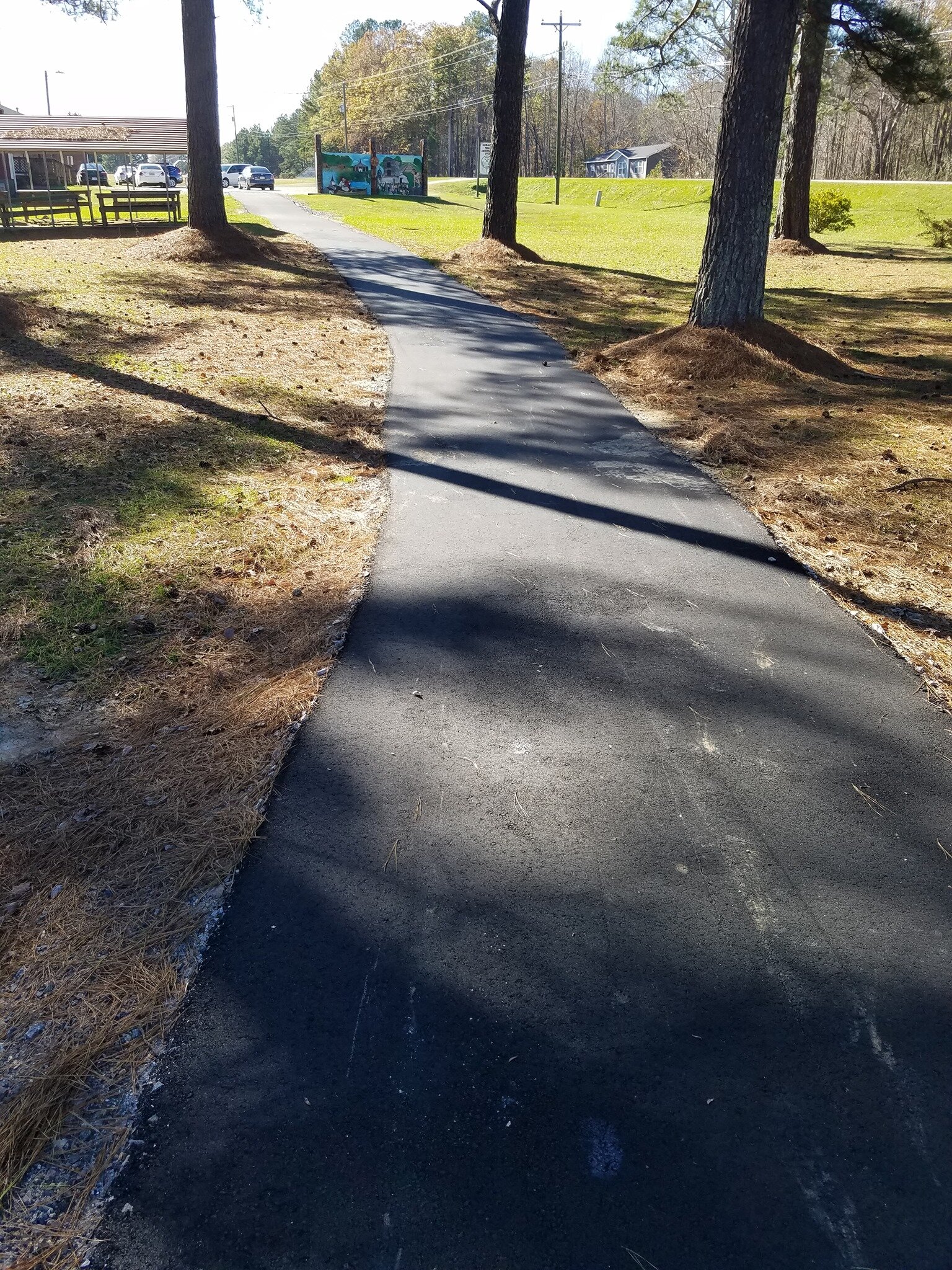
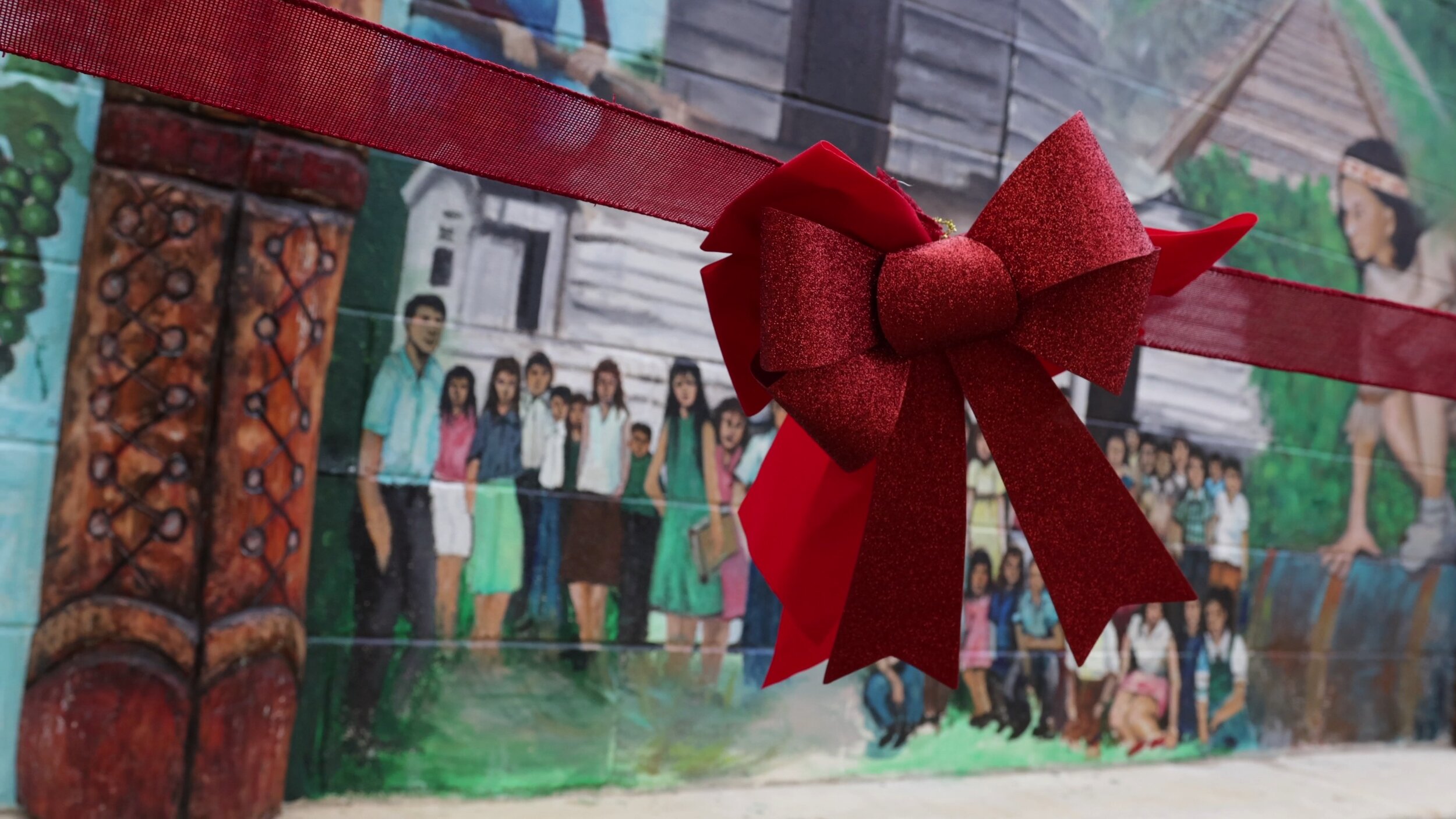
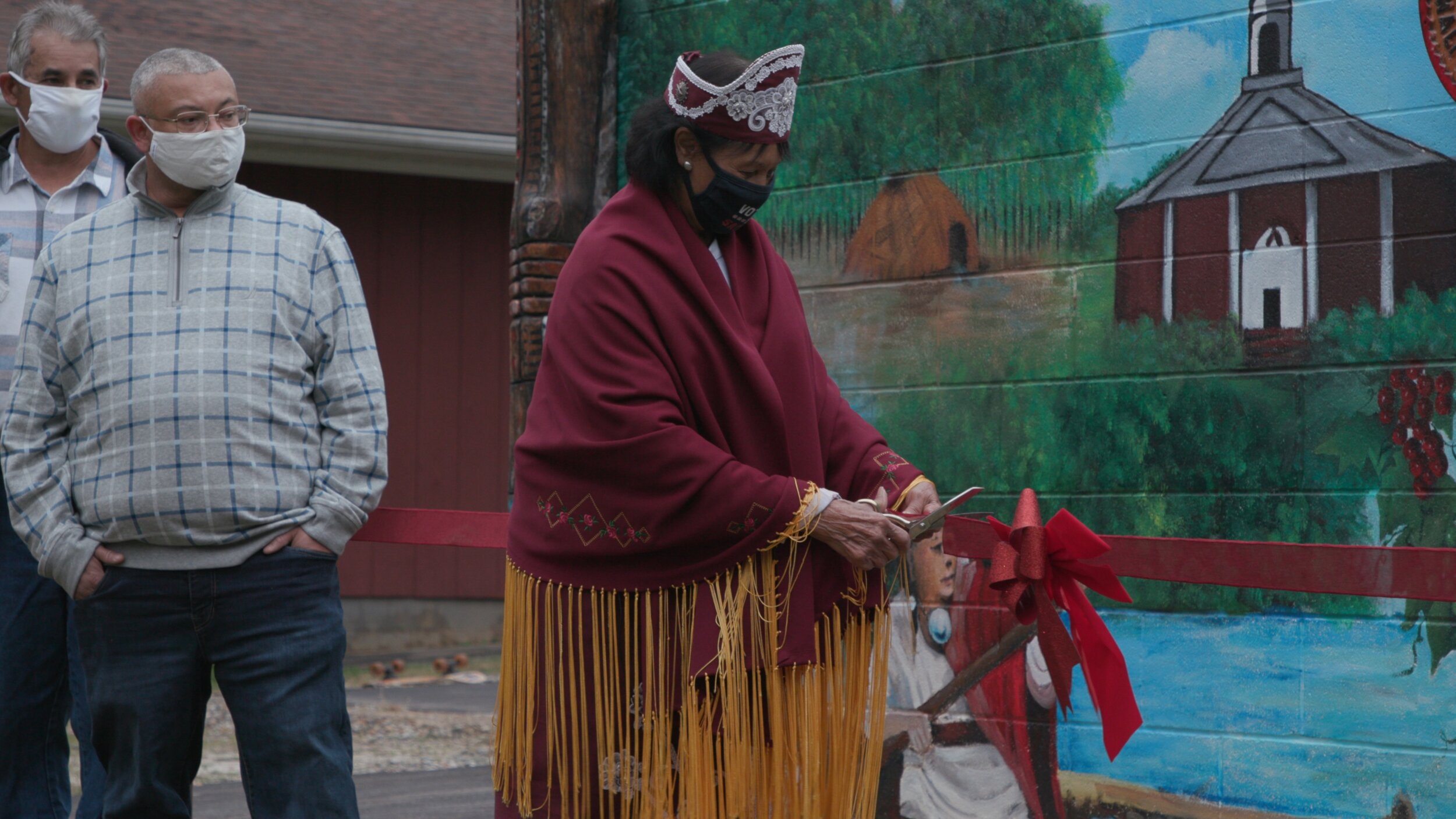
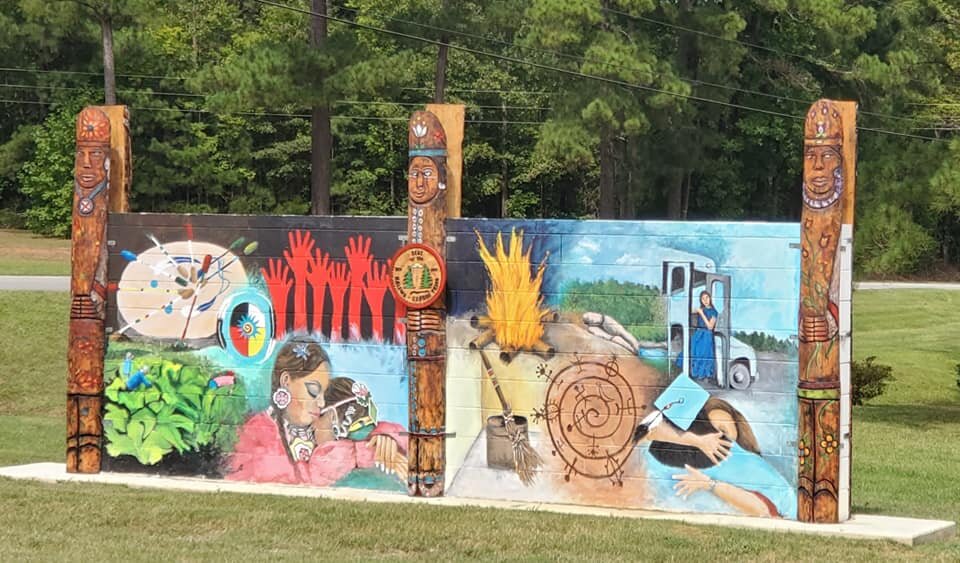
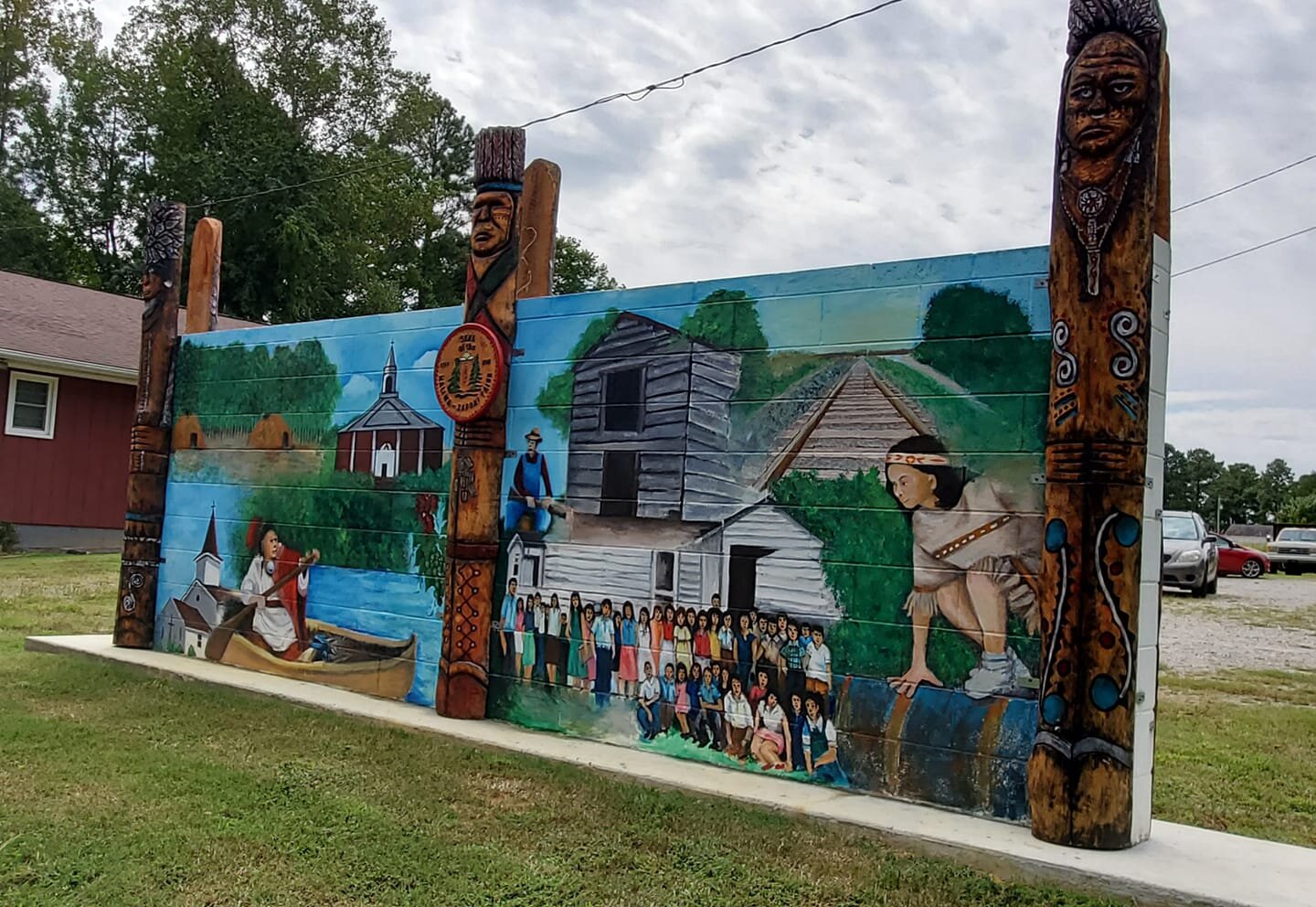
The following segment premiered as a part of the PBS North Carolina Visibly Speaking series, which documents all ten Inclusive Public Art grantee projects from Cohort I.



